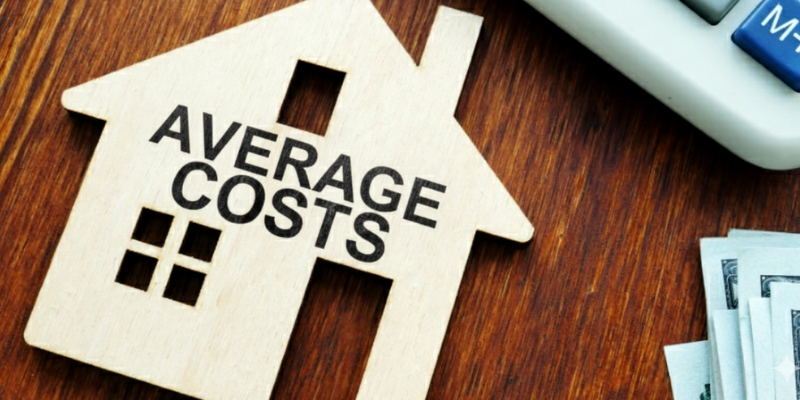
Understanding the Real Estate Market Trends in Seattle, WA
For potential house sellers in Seattle, WA, knowing the trends in the real estate market is critical. Seattle is experiencing changes in the real estate market due to the city’s economic development, which has created numerous job openings and led to a population increase.
The growing demand for real estate is a result of the growing tech industry, which has raised the value of real estate. Sellers should consider the seasonal trends; the real estate market is usually active in the spring and summer, as these are the warmer months.
The mortgage market economically impacts the buyer’s demand; buyers are stimulated, and the price of the property is high if the rates are low. One should keep track of the level of the inventory; a low supply of homes can create a bidding war, which benefits the sellers.
For effective selling, the seller should rely on market knowledge for setting the price and selling time. Kind House Buyers is with you to help you sell your home for the best price.
Assessing the Average Costs of Home Selling in Seattle, WA
In order to estimate the average cost of selling a home in Seattle, important fundamental costs must be taken into consideration to get the true value. The biggest expense in home selling is the real estate agent commission, which is usually 5% to 6% of the sale price of the home.
In Seattle, the market is very competitive, and home sellers try to get the best price for their home. During selling, home staging and professional photographing are used to appeal to buyers, which adds a couple of hundred to several thousand dollars to the costs. Also, sellers need to pay for the closing costs, which consist of title insurance, escrow fees, and transfer taxes.
These costs can add up to 1% to 3% of the sale price of the home. If there are any mortgage balances or liens on the property, those must be paid off as well from the sale. If a home has marketability or value issues, pre-sale inspections and repairs may be a requirement.
Legal Considerations When Selling Residential Property in Washington State
The first thing to consider when selling a home in Seattle is the legalities involved to ensure a smooth transaction. Under Washington State law, sellers are required to complete a full disclosure statement, outlining known defects or issues with the home, such as the roof or plumbing. This aids transparency and assists in protecting the seller from future lawsuits, while also helping the buyer see the potential risks involved with the home.

Local zoning rules and regulations are also relevant to the seller, as these may affect the sale. Thorough attention to the purchase and sale agreement is crucial, as this document contains legally binding terms of the sale, including contingencies and timelines, and therefore, outlines the legal obligations of the seller.
Complexity of the legal requirements, such as conducting a title search, preparing a deed, and dealing with liens or other encumbrances on the property, are reasons why hiring a competent real estate lawyer is advisable. The seller must also be knowledgeable about the state taxes and abide by the federal fair housing laws to avoid lawsuits.
Considering the legal aspects of selling a home in Seattle is advantageous to the seller, as it greatly increases the likelihood of a successful home-selling experience. The competitiveness of Seattle’s real estate market places a great value on the seller’s time, as potential buyers are readily available. Sell your Washington house faster and in nearby cities by understanding these legal requirements and working with professionals who know the market well.
Preparing Your Home Inspection Checklist Before Listing Your House
Home inspections are a requirement in Seattle. For the best-selling experience, checklist inspections should be done prior to selling a house. Commence the process by determining the selling structure and figuring out the possible detractors to a buyer. Identify foundations or roofs that may need fixing.
For the Seattle region, plumbing and hydraulic systems offer a particular challenge that should be handled definitively. Identify leaks and damaged pipes. Test the electric systems and identify possible malfunctions, especially in wiring. Efficient operation of HVAC should also be conducted. Work plans of these systems, especially in cooling systems, should also be reviewed in the light of climate control.
Minor repairs and system updates should also be considered, especially in flooring, walls, and fixtures. Interest in the yard and landscaping has also become a growing challenge in the Seattle area, particularly in the outdoor spaces adjacent to homes.
By completing the checklist, you are most likely to simplify the selling process when selling your home in a seller’s market. In doing so, you offer potential buyers the fewest possible distractions and challenges, allowing them to complete the transaction with ease. In the Seattle area, selling your home in a seller’s market can help you move through the process competitively and with greater confidence.
What You Need to Know About Staging Your Home for Sale in Seattle
When it comes to selling a house in Seattle, staging your home is essential to influencing how buyers view your home and possibly how much it will sell for. Start preparing your home for a showing by decluttering each room so it feels clean and inviting rather than overwhelming. Buyers want to be able to visualize themselves living in your space.
![Median Price to Sell a House in [maket_city]](https://image-cdn.carrot.com/uploads/sites/25870/2025/10/Median-Price-to-Sell-a-House.png)
Light is very important to take into consideration, especially during those overcast Seattle months. Rooms will feel darker, so use as much natural light as possible, and use warm light to artificially brighten your home. Rooms and decor will feel spacious when walls and decor are painted and kept in neutral colors.
Adding a few Seattle-specific cultural decor items, like a piece of artwork by a local artist, or a subtle decor piece that references an iconic Seattle landmark, can help buyers form an emotional attachment to your home. Make an extra effort for curb appeal by keeping a well-manicured lawn and trimmed shrubs; it is also worth your time to change seasonal flowers in your yard.
In this technologically advanced world, it is also possible to virtually stage a home, and by this I mean having a remote buyer beta use an interactive online tour and virtually experience your home. Taking this type of staging approach will more likely quicken your closing rate for competitive offers in Seattle’s fast-moving real estate market.
Maximize Your Seattle Home Sale: Traditional vs Modern Marketing
Understanding the differences between traditional and modern marketing strategies can help Seattle home sellers achieve the best results.
| Aspect | Traditional Marketing | Modern Marketing |
|---|---|---|
| Methods | Open houses, print ads, direct mail | Social media ads, virtual tours, real estate websites |
| Approach | Face-to-face, tangible materials | Digital platforms, online engagement |
| Audience Reach | Local buyers | Broader, tech-savvy buyers |
| Strengths | Builds trust and personal connections | Highlights property features to a wider audience |
| Purpose | Attract buyers through direct contact | Capture online interest and showcase unique features |
| Best Use | Establish credibility | Maximize exposure through targeted content |
| Optimal Strategy | Time-tested methods | Combine tech-driven tactics with traditional methods |
By blending both strategies, Seattle sellers can reach a diverse range of buyers and sell their homes effectively.
Contact us today to create a customized marketing plan that combines the best of both traditional and modern strategies
Creating an Effective Open House Strategy to Attract Buyers
Developing a sound approach to open houses is a necessary step to take before selling a Seattle home to draw potential buyers. For capturing potential buyer interests, make sure to have the house clean, showing, and staging the home to highlight the finest, appealing features of the home to connect to the local market.

Due to the psychological first impression factor, one might consider enhancing landscaping and doing some general touching-up landscaping and exterior enhancements to the home to emphasize first impressions/downplay psychological depreciation. The first impression is that the homebuyers focus on the surroundings. The timing factor is also essential; hosting the open house at peak weekend hours maximizes potential buyer traffic.
Use social media and other online forms of communication to spread the marketing and publicity about the upcoming open house to potential buyers looking to purchase a home. Enhance client engagement at the open houses by offering property feature-focused informational material.
An agent who understands the local Seattle market will make this client’s job easier, as they will understand what the local Seattle potential buyers’ focus is. Clients also tend to stay longer when provided “free” snacks. This helps them engage more with imagining themselves in the home as they go through the open house.
What Are the Average Closing Costs in Seattle?
To effectively plan your finances when selling a house in Seattle, you should know the average closing costs. For closing costs, Seattle sellers typically pay about 1-3% of the sale price of the home.
This includes escrow, title, taxes, and, in some situations, fees for a home inspection, and, if applicable, the attorney’s fees as well as unpaid taxes on the property. Real estate sellers are the ones expected to pay closing costs, even on the unpaid taxes. Some sellers may think that unpaid taxes on a property are the responsibility of buyers, but this is not true.
Because closing costs have such a meaningful impact on the net cash proceeds from a home sale, one should know the expected closing costs to make the home-selling process less stressful. Closing costs are a necessary expense, but knowing them in advance makes them much less stressful.
When looking to sell quickly or avoid the complexities of traditional listings, working with investor home buyers in Seattle and nearby cities can be a smart option. These buyers often purchase homes as-is, allowing sellers to skip lengthy repairs, inspections, and other traditional hurdles while still closing the sale efficiently.
What Taxes Do You Pay When Selling a House in Washington State?
Understanding all available taxes in Washington State will help you have a smooth transaction when selling a home. One of the main taxes sellers will have to think about is the Real Estate Excise Tax (REET), which is charged according to the price of the home sold. In Seattle, the tax is progressive, which means the higher the home price, the higher the REET.
The state’s base tax rate is 1% for homes sold at $500k or lower and increases dramatically for homes sold at higher prices. Selling homes at higher prices will also lead to more local jurisdiction taxes, and higher-rate local excise taxes will also apply. Sellers will have to calculate all additional taxes to avoid surprises when closing the deal.
For this, a realtor or a tax advisor who is familiar with the specifics about Seattle would be best to help you ensure all tax compliance is met when selling your home in Washington State.
Looking to sell your home while keeping costs low? Avoid high fees, costly repairs, and the stress of a traditional sale. Kind House Buyers is here to help. We provide fair cash offers, handle all the details, and make selling your home simple and efficient. Curious about how much it might cost to sell your house? Call us at (253) 216-2497 for a no-obligation offer and get started today!
Helpful Seattle Blog Articles
- Seattle, WA, Neighborhood Map
- The Best Free Things to Do in Seattle, WA
- Can I Use a Title Company to Sell My House in Seattle, WA
- How to Sell an Investment Property in Seattle, WA
- How Long Does an Eviction Process Take in Seattle, WA
- Selling a Home That Needs Repairs in Seattle, WA
- What to Do If You Inherit a Distressed Home in Seattle, WA?
- Can I Rent Out My House During Divorce in Seattle, WA?
- Average Cost to Sell a House in Seattle, WA
- How Long After an Appraisal Can You Close in Seattle, WA
- How to Stage a House for Sale in Seattle, WA
- Selling an Old House in Seattle, WA
- Selling Parents’ House Before Death in Seattle, WA
- Selling Your Home in a Seller’s Market in Seattle, WA

| JUNK FEES | LUXURY PROPERTIES | LUXURY HOME | BROKER | REALTOR | MONEY |
| NET PROFIT | TITLE COMPANY | FSBO | FOR SALE BY OWNER | NEGOTIATORS | MORTGAGE INTEREST |
| MORTGAGE LENDER | EQUITY | HOMELIGHT | CONTRACTS | CAPITAL GAINS TAXES | MEDIAN HOME PRICES |
| APPRAISAL | OWNERSHIP | MEDIAN | LENDING | LOANS | ATTORNEYS |
| COMPANY | CASH | BROKERS | BROKERAGE | BIT | POLICY |
| INCENTIVES | HOA | WARRANTY | EARLY PAYOFF | OUT OF POCKET | THE NATIONAL ASSOCIATION OF REALTORS |
| NAR | REALTOR® | HOME WARRANTY | FURNITURE | LENDER | CONFIDENCE |
| CARPET | BLOG | UTILITIES | U.S. | DISCOUNT BROKERS | DISCOUNT BROKERAGE |
| SEWER | RETURNS ON INVESTMENT | ROI | UTILITIES | HOMEOWNERSHIP | LIST PRICE |
| LAWNS | INSURANCE POLICY | HOME INSPECTOR | FLAT FEE | DO IT YOURSELF | DIY |
| CONSUMERS | CONDO | CALCULATOR | BATHROOM | BANK | BANKING |
| CLOSING COSTS ARE | THE BUYER’S AGENT | REAL ESTATE AGENTS | CLOSING COSTS OR | CAPITAL GAINS TAXES | YOUR HOME’S VALUE |
| COSTS CAN ADD UP | FOR SALE BY OWNER | A REAL ESTATE ATTORNEY |
